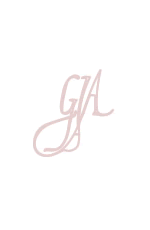- |
User Links
Miracles Attending Israel's Journey

When Israel, freed from Pharaoh's hand
Author: Isaac WattsTune: ERHALT UNS, HERR
Published in 48 hymnals
Printable scores: PDF, MusicXMLAudio files: MIDI
Representative Text
1 When Isra'l, freed from Pharaoh’s hand,
Left the proud tyrant and his land,
The tribes with cheerful homage own
Their king and Judah was his throne.
2 Across the deep their journey lay;
The deep divides to make them way;
Jordan beheld their march, and fled
With backward current to his head.
3 The mountains shook like frighted sheep,
Like lambs the little hillocks leap!
Not Sinai on her base could stand,
Conscious of sov'reign power at hand.
4 What pow'r could make the deep divide?
Make Jordan backward roll his tide?
Why did ye leap, ye little hills
And whence the fright that Sinai feels?
5 Let ev'ry mountain, ev'ry flood,
Retire and know the approaching God,
The King of Israel: see Him here;
Tremble, thou earth, adore and fear.
6 He thunders, and all nature mourns,
The rock to standing pools he turns;
Flints spring with fountains at his word,
And fires and seas confess the Lord.
Source: Church Hymn Book: consisting of newly composed hymns with the addition of hymns and psalms, from other authors, carefully adapted for the use of public worship, and many other occasions (1st ed.) #P.CXIV
Author: Isaac Watts
 Isaac Watts was the son of a schoolmaster, and was born in Southampton, July 17, 1674. He is said to have shown remarkable precocity in childhood, beginning the study of Latin, in his fourth year, and writing respectable verses at the age of seven. At the age of sixteen, he went to London to study in the Academy of the Rev. Thomas Rowe, an Independent minister. In 1698, he became assistant minister of the Independent Church, Berry St., London. In 1702, he became pastor. In 1712, he accepted an invitation to visit Sir Thomas Abney, at his residence of Abney Park, and at Sir Thomas' pressing request, made it his home for the remainder of his life. It was a residence most favourable for his health, and for the prosecution of his literary… Go to person page >
Isaac Watts was the son of a schoolmaster, and was born in Southampton, July 17, 1674. He is said to have shown remarkable precocity in childhood, beginning the study of Latin, in his fourth year, and writing respectable verses at the age of seven. At the age of sixteen, he went to London to study in the Academy of the Rev. Thomas Rowe, an Independent minister. In 1698, he became assistant minister of the Independent Church, Berry St., London. In 1702, he became pastor. In 1712, he accepted an invitation to visit Sir Thomas Abney, at his residence of Abney Park, and at Sir Thomas' pressing request, made it his home for the remainder of his life. It was a residence most favourable for his health, and for the prosecution of his literary… Go to person page >Text Information
| First Line: | When Israel, freed from Pharaoh's hand |
| Title: | Miracles Attending Israel's Journey |
| Author: | Isaac Watts |
| Meter: | 8.8.8.8 |
| Language: | English |
| Copyright: | Public Domain |
Notes
When Israel freed from Pharaoh's hand. J. Watts. [Psalms cxiv.] Written in 1712, and sent by Watts, with a letter, to the Spectator, in which it appeared on "Tuesday, August 19, 1712," No. 461, in 6 stanzas of 4 lines as a rendering of Psalms cxiv. In the letter Watts explained the origin of his rendering, it being to show the force and wisdom of retaining the Name of God to the end of the paraphrase as in the Psalm, and not to introduce it at the beginning as had been previously done by others. The paraphrase was given in Watts's Psalms of David, 1719, with the alteration of stanza ii. 1 l. 3, 4 from—
"The streams of Jordan saw, and fled
With backward current to their head," to—
"Jordan beheld their march, and fled
With backward current to his head."
The New Congregational Hymn Book, 1859, and others give the text of 1719.
--John Julian, Dictionary of Hymnology (1907)


 My Starred Hymns
My Starred Hymns




